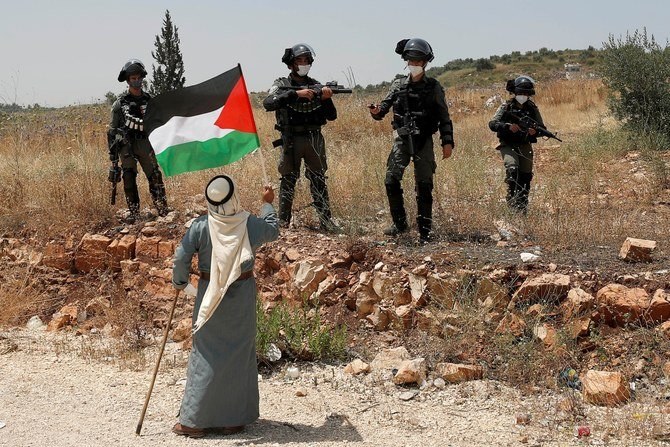
- ARAB NEWS
- 09 Jul 2025

The Palestinian conflict has taken more of the UN’s time and energy than any other conflict in the world. This has been both good and bad for Palestine.
As the 76th session of the UN General Assembly begins its deliberations, an important question must be honestly addressed. Does the UN still make a difference to the lives of people, especially Palestinians, under the Israeli military occupation and the illegal colonial settlement enterprise?
Supporters say the UN is still an important forum and its decisions set the record for what is right. If the world community is unable to deliver the decisions of this international body, the problem is with those countries, not the UN system.
Supporters of the UN point to its repeated insistence on the illegality of Israeli settlements, the refusal of every country to recognize Israel’s unilateral annexation of East Jerusalem, and the fact that the UNGA voted overwhelmingly to recognize Palestine as a nonmember state. This statehood recognition has allowed Palestine to request the International Court of Justice at The Hague to pursue Israeli war crimes, including the continuous violation of international humanitarian law, the war on Gaza, and, most recently, house demolitions by Israel in the Jordan Valley.
Palestinian UN officials and supporters around the world have pushed the envelope as hard as they can. They have instituted a quarterly session at the UN Security Council in which UN officials are obliged to report on progress on the Palestinian issue.
Naturally, the biggest obstacle for Palestinians is the fact that UN resolutions are toothless due to the near-constant use by a permanent UNSC member — the US — of its veto power. While the US has used its veto power more than any other country, all five permanent members (the US, the UK, France, China and Russia) have used their vetoes in areas that are of interest to them and their allies.
As part of its protection of Israel, the US also prevents the use of sanctions and other punitive powers under Chapter VII of the UN Charter. Chapter VII sets out the UNSC’s powers to maintain peace. It allows the council to “determine the existence of any threat to the peace, breach of the peace, or act of aggression” and to take military and nonmilitary action to “restore international peace and security.” Denying anyone the ability to refer to Chapter VII, Washington has turned this important body into a debate club at times rather than an institute for peace and security around the world.
While the UNSC has been handcuffed by America’s protection of Israel, Palestinians can point to success on other international fronts. UN officials of the state of Palestine refer to the success of the UN refugee agency for Palestinians, the development agency UNDP and UNICEF’s efforts to protect Palestinian children. They refer to calls for the protection of important Palestinian locations in Jerusalem, Hebron and Bethlehem under UNESCO’s World Heritage Sites program. This has helped focus attention on these locations, although it has done little to actually deter Israel from its regular violations of these protected sites. Israel has even barred UNESCO teams from visiting the sites, but they have not paid a political price for this insubordination.
To overcome these problems, a unifying effort is needed with the participation of the world powers. Palestine is a leading member of the G77 plus China coalition and is supported by most of the UN members, yet it has been difficult to translate this network into the kind of power that could force the US to place serious pressure on Israel to abide by the UN’s rules and its resolutions.
During the Donald Trump era, Palestine’s ability to put a stop to Washington’s blind support for Israel was at its lowest level. That was despite the fact the world community joined Palestine in condemning Trump’s vision, which would have absorbed a third of the Occupied Territories into Israel.
This year’s UNGA — the first during Joe Biden’s presidency — has the promise of bringing back world support to Palestine. The Biden administration is called on to pick up where Barack Obama left off in 2016 when the UNSC passed the landmark anti-settlement Resolution 2334. This resolution, which the US didn’t veto, has been sitting on the table without any serious effort to try and enforce it on the ground ever since.
The organization’s decisions can be a savior for the oppressed, so long as its words have meaning and their resolutions have teeth.
Daoud Kuttab
The issue is no longer a UN issue, but a test of the political will of the international community. The political will requires networking and prioritization by the Palestinian leadership in order to make the Israelis pay a political price for defying the will of the UN community. Ever since the UN gave Israel its birth certificate in 1948, the Israelis have not only taken that gift but have also gobbled up the land earmarked for a Palestinian state and have moved their people on to those occupied lands, in violation of international law.
The UN and its decisions can be a savior for the oppressed, so long as their words have meaning and their resolutions have teeth. For now, the UN continues to produce toothless statements when it comes to the question of Palestine.